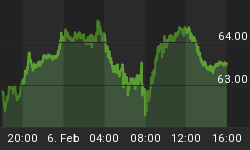In our July 5 commentary ("Mixed Data Says the UK's BOE Will Stand Pat This Week"), we noted that only two of the nine members of the UK's Monetary Policy Committee (MPC) had voted for a rate cut at the June meeting, and concluded that the other members would want to see more definitive signs that any risk of a resurgence in borrowing is passed, before cutting again. We also noted that market watchers should pay more attention to housing market and household consumption data.
Today, the minutes of the July 6-7 MPC meeting were released, and we learned that four of the nine members had actually voted for a rate cut. The doves argued that a 25bp easing now could avert the need for bigger rate cuts down the road, given the threat of consumer spending falling more sharply and of inflation coming in below target.
However, the arguments of the hawks, which included BoE Governor King, were unchanged - the consumer slowdown may prove temporary, it is not clear that growth is about to weaken materially, and a fall in the pound alongside a fall in market interest rates could add to inflationary pressures.
The markets have interpreted the news of a 5-4 split at the July meeting as evidence that the August 3-4 meeting will result in a 25 bp cut in the UK's repo rate, to 4.50%. Sterling has duly weakened against both the US$ and the euro in anticipation of lower rates. The odds of an easing have certainly increased, but we still say a cut is not a foregone conclusion.

According to today's data from the British Bankers' Association, mortgage lending picked up slightly in June, with underlying lending reaching £4.6 billion (£4.5 billion in May). Separately, the Council of Mortgage Lenders reported that the number of loans for house purchase jumped to 100,000 in June, up from 85,000 in May - lower than the June 2004 figure of 124,000, but hardly in a slump. The Building Societies Association also reported that mortgage approvals rebounded in June. Various recent surveys point to house price inflation slowing to around four-year lows in May and June, but still rising at an annual rate around 6.0%. All told, it looks as if the housing market is stabilizing, rather than declining further.
Then again, there has been some gloomy data over the past couple of weeks. The number of Britons out of work and claiming unemployment benefit rose again in June, taking the claimant count jobless rate to 2.8%. That's hardly a worrisome level, but the fact that the numbers have gone up for five straight months - the longest run of consecutive increases since 1992 - is cause for concern. Sooner or later, more people out of work will mean lower consumer confidence, which will impact consumption and the housing market.

Tomorrow we get June retail sales data. Sales in May were near-flat on the month and slowed to an annual rate of increase of just 1.3%. Another subdued outcome will further solidify market expectations of an August rate cut. On Friday 22nd we'll get preliminary Q2 GDP. The headline GDP numbers will produce a flurry of chatter, especially if growth has not picked up from the two-year low of 0.4% q-o-q seen in Q1. We suspect the headline numbers will look a little better than this, but we'll have to wait awhile for the details and revisions to get a clearer picture of what was really going on in Q2.

At the July 6-7 MPC meeting, the hawks saw no great risk in waiting for a more detailed analysis of recent GDP revisions, which will be forthcoming in the BoE's August Inflation Report. This is not due for release to the public until August 10, but the MPC members will see the Bank's forecast updates in time for their next meeting on August 3-4. The rest of us will just have to wait and see.















